The current job market is a highly competitive market but also a great opportunity for well-prepared job seekers because it is constantly changing and it pays well to be connected with these trends. There are many areas where the demand for skilled resources is much higher than the supply of professionals active in those respective areas, especially where technology is involved. Most technology driven industries are fiercely competing for talent because the advance of technology is always faster than the pace with which professionals can develop their technology skills.
To help you find the right career opportunity faster and more efficiently (in Revenue Operations or any other professional field), we have put together a list of 10 highly practical career development and job search tips. Some of these require time to complete while others are ongoing activities, but all are important to take into consideration before submitting your next job application.
1. Identify the right professional niche for you
If you’re already active in a rewarding professional career and are not looking to change it soon, you can skip this step. However, it often helps to take a step back, look at your current career path and assess if it truly aligns with your professional goals and with your core personal values. You might find that you need to make adjustments or even reinvent yourself to be prepared for what’s coming your way, especially if the future of work might impact your current status quo. Or you might just want to get into a highly in demand professional field to secure your career for the years to come.
If you’re at the beginning of your career or you’re looking to reposition yourself in a different professional field, it helps to narrow down what you’re looking for. Make sure you know what you want and like to do (it brings you joy), as well as what you don’t want to do. Identify your strengths and your weaknesses and filter career opportunities accordingly. However, don’t be afraid to apply to jobs that you might seem unqualified for as long as you are willing to get out of your comfort zone and develop those respective skills.
Don’t listen to the advice to follow your passion as passion is rather for hobbies, not for a professional career, at least that’s what Scott Galloway says. Instead of something you’re just passionate about, try to identify a professional career that you think will bring you pleasure in doing and try to be so good that they can’t ignore you. According to Naval, If you want to be successful today and in the future, you should study physics, mathematics, computers, microeconomics, game theory, and persuasion.
There are a lot professional fields that are in high demand these days, especially in technology related areas, such as software engineering, data analytics, cloud computing, information security, etc. These will see continuously growing demand in the future as the speed with which technology evolves far outpaces the speed with which humans acquire the skills to work with these new technologies. If you’re not on the techie side, don’t worry! Soft skills like leadership, critical thinking, creativity or emotional intelligence are also in high demand and will still be sought after in the foreseeable future as well, thus making the go to market function (sales, marketing & customer success) also a highly attractive professional field.
2. Define your desired income goal
Once you decided on the professional niche you want to profess in, it’s time to define what your income goal is. This is highly important as not only it makes your life less of a struggle, but it can also help you narrow down your options and make your job search faster and more efficient. Don’t overthink your income goal (to avoid impostor syndrome kicking in), but do make an informed decision (research salary ranges for your desired job title, location and company type) or at least make an educated guess.
There are multiple ways to calculate your income goal, from calculating your lifestyle costs (needs & wants) to setting a desired revenue per hour, much like freelancers do. However, try to tie your income goal to other important (but realistic) life goals, such as desired lifestyle, planned savings (for retirement, paying a student loan or other similar goals), investment plans or building a family.
Do not overcomplicate things and try to use frameworks like the 50-30-20 rule to guide your desired income goal. You should be able to cover your needs with 50% of your salary, your wants with about 30% of it, while also being able to save or invest the remaining 20%. Don’t forget that most salaries are expressed in gross value, so you need to know the relevant salary tax for you and deduct it to reach your net income number.
3. Upskill for areas with a shortage in talent
As companies continue to automate business processes with the use of technology and data, keep this in your mind when you choose your professional niche. Following the basic economic rule of supply and demand, these fast growing, high-demand, professional areas will definitely have a shortage of talent and they will also guarantee an above the average income.
Revenue Operations is both a new professional area (or rather a remix of a few other roles, such as marketing, sales & customer success operations) as well as quite a complex one (because it merges multiple functions into a single one). A Revenue Operations professional needs to understand data, processes, technology and people in order to support their go to market team and this mix of both hard and soft skills is not easy for companies to recruit for.
Once you have identified your desired professional niche and income goal it’s time to skill up to boost your interview selection chances as well as discoverability by recruiters. To match up to the potential challenges of your future job you need to make sure you have both hard skills as well as soft skills to be one of the top candidates for it.
Make sure you hone your soft skills as well as these will come in handy, especially during the job interview, but also while being on the actual job. Make sure you have digital and data literacy as technology and numbers are core professional tools these days and these can be applied in almost any professional field. Creativity, curiosity, collaboration, problem solving, emotional intelligence, leadership and adaptability are also core soft skills to have in order to be successful at work.
If I were to pick the top skill that everyone needs to cultivate to be successful in their professional career, this would be curiosity. Curiosity is what drives continuous learning and allows you to become a better person and to adapt easier to the ever changing professional environment. Curiosity can make you a formidable problem solver as well. A growth mindset is critical to thriving in today’s and tomorrow’s workplace.
4. Create a digital presence so you can be found
In today’s digital age, it’s essential to have a strong online presence. Creating a digital presence can help you stand out from other job seekers and make it easier for potential employers to find you. Start by creating a professional website or blog that showcases your skills, experience, and achievements. You can also create social media profiles on platforms like Twitter, Instagram, and Facebook to connect with other professionals in your industry.
When creating your digital presence, make sure to keep it professional and relevant to your career goals. Avoid posting anything that could be considered controversial or offensive, and make sure to keep your profiles up to date with your latest accomplishments and projects.
5. Make sure your LinkedIn profile is up to date
LinkedIn is one of the most popular social media platforms for professionals, and having an up-to-date profile can help you get noticed by potential employers. Make sure your profile includes a professional headshot, a summary of your skills and experience, and a list of your accomplishments and achievements.
You can also use LinkedIn to connect with other professionals in your industry and join groups related to your career goals. This can help you stay up to date on industry news and trends and make valuable connections that could lead to job opportunities.
6. Network actively and with the right people
Networking is an essential part of any job search, and it’s important to do it actively and with the right people. Attend industry events, join professional organizations, and connect with other professionals in your field on social media.
When networking, focus on building genuine relationships with people who can help you achieve your career goals. Don’t just focus on getting a job; instead, focus on building a network of supportive and knowledgeable professionals who can offer advice, mentorship, and referrals.
7. Research the company you’re applying to
Before applying for a job, it’s important to research the company you’re applying to. This can help you tailor your application and interview responses to the company’s values, mission, and culture.
Start by visiting the company’s website and reading about their products or services, mission statement, and company culture. You can also research the company on social media and read reviews from current and former employees on websites like Glassdoor.
8. Apply on the company website
When applying for a job, it’s important to apply on the company’s website rather than through a third-party job board. This can help ensure that your application is received and reviewed by the company’s hiring team.
Make sure to follow the application instructions carefully and include all the required documents and information. You can also consider reaching out to the company’s HR department or hiring manager to express your interest in the position and ask any questions you may have.
9. Prepare for the interview
Preparing for an interview is essential to making a good impression on potential employers. Research common interview questions and practice your responses with a friend or family member. Make sure to dress professionally and arrive early to the interview.
During the interview, make sure to listen carefully to the interviewer’s questions and answer them thoughtfully and honestly. You can also prepare a list of questions to ask the interviewer about the company and the position.
10. Make that extra step to impress
To stand out from other job seekers, consider making an extra effort to impress potential employers. This could include sending a thank-you note after the interview, following up with the hiring manager to express your continued interest in the position, or even creating a portfolio of your work to showcase your skills and experience.
Remember, the job search process can be competitive, but by taking these extra steps, you can increase your chances of landing your dream job.
The Revenue Operations career path
Despite the economic downturn (or maybe because of it), Revenue Operations is a highly active recruitment niche as most companies are looking to optimize their revenue engines by improving internal efficiencies and reducing costs. High-growth technology start-ups and scale-ups burning VC money are also optimizing their team size and structure as they strive to extend their existing funding runways to survive through the storm.
Thus, it pays well to be a RevOps professional today so a lot of job seekers should consider the Revenue Operations career path. If you’re looking at getting started with a Revenue Operations career, check out the multiple resources available on our site. If you’re already active in this space as a sales, marketing, customer success, or operations professional, check out our curated RevOps jobs as you might find your next career opportunity right here.



